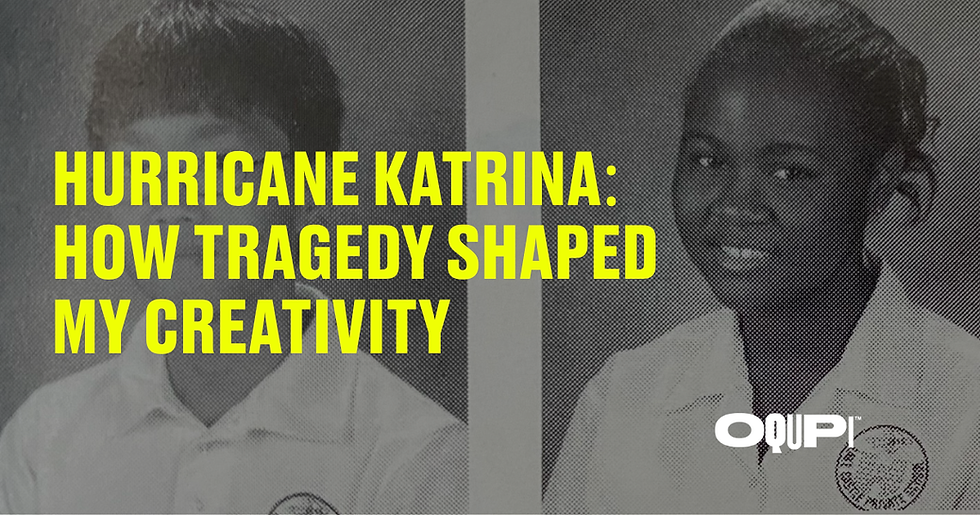From Friction to Family: Dallas After Katrina
- Cassius Clay

- Aug 28
- 3 min read
Updated: Aug 29
Back in 2005, I was living in Dallas as a pre-teen. I seen it all first hand.
When Katrina hit and families from New Orleans started pouring into Texas, the city shifted overnight. I’ll never forget how it felt to watch schools, neighborhoods, and entire communities try to adjust to this massive change.
It wasn’t smooth. Dallas was already a city where a lot of Black families were strained with the ever changing economy. Folks were grinding just to stay afloat. Then, suddenly, thousands of people carrying trauma, loss, and survival landed right in our laps. Teachers and staff were overwhelmed. Families were stretched to the max. And the kids? Man… they felt invisible. Unheard. They carried pain they couldn’t name, and it came out in fights, in disruption, in ways most adults didn’t understand. To be honest Dallas felt overcrowded instantly. It was hard for folks to adapt to the change and truly become a community.
That’s where the Dallas vs. New Orleans beef grew roots. It was pride on both sides — Dallas kids feeling like, “This is our city,” while New Orleans kids were fighting just to hold onto who they were after losing everything. The tension turned toxic at times. I saw fights break out in the streets, crime rise in ways that weren’t just about poverty, but about two cultures clashing. Traffic would get blocked because groups were throwing down in broad daylight. And truthfully, nobody was really listening — not the schools, not the city, not even a lot of the parents.
Still, over time, we didn’t have a choice. We were forced to exist together — in the same classrooms, on the same buses, in the same churches. Eventually, the beef lost some of its steam. Slowly, we started to actually see each other.
Dallas Culture Meets New Orleans Soul
Even in all the chaos, the arts were the bridge. Dallas had its own sound — raw Southern hip-hop, street culture, and a strong club scene. But when New Orleans arrived, the city couldn’t help but absorb it. Bounce, brass bands, and that unmistakable New Orleans energy started blending with what Dallas already had.
I remember watching how fast the influence spread. Dance styles changed. Music shifted. Even slang and fashion started to cross over. My own Louisiana roots felt more visible than ever. Zydeco and bounce weren’t just family traditions anymore — they had space in Dallas clubs, schools, and block parties.
We didn’t always talk it out, but we danced it out. We rapped it out. We created out of the mess. And that’s where we found common ground — in the arts.
Looking Back from Houston
Now, as an adult living in Houston, I can see it differently. Katrina didn’t just move people — it moved culture. Dallas had to bend, adjust, and eventually grow. And the truth is, that collision reshaped how we define Southern Black creativity.
What started in fights and misunderstandings turned into collaboration, influence, and shared identity. Almost 20 years later, you can still hear it in the music, see it in the art, and feel it in the way we move as Black folks in the South.
For me, it’s a reminder that even in storms — literal or cultural — we find ways to rebuild. We reinvent. We rise.
REFLECTION:
If you lived through this moment in Dallas (or anywhere in Texas), how did it shape you? Did it change your art? Your family? Your way of seeing culture? Reply and share your story. Together, we can archive this piece of truth.






Comments